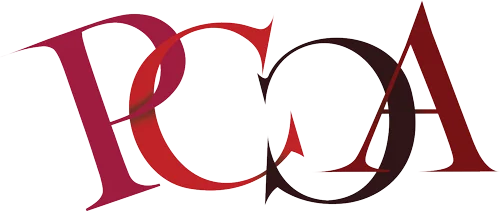Can we overcome the unthinkable in psychoanalysis in relation to main historical events?
by Bettina Jesberg
This was the title of a small conference in Paris October 2015, where Veronika Grueneisen and I went to speak to French Psychoanalytic colleagues (SPF) about our experiences with the Nazareth Conferences and PCCA.
We are very grateful, especially to Hélène Oppenheim-Gluckman, who had the idea and organized to invite us to the SPF, as well as to Monique David-Ménard – they both discussed our presentation- and to Patrick Guyomard, the president of the society who made this project possible. Of course, there are many other people we could name and we have to thank – I will mention the members of the French-German Psychoanalytic group. Without them, we would not even have known each other.
Veronika and I decided to talk one in English, one in French, we took turns, and our listeners had a French translation (kindly done by Marie-Christine Moulier et Marie-Christine Baffoy). I describe main lines of our presentation:
We started with the history of the Nazareth-conferences, “how it all started”, and spoke shortly about the conferences’ structure and concept.
We named their aim, that is not reconciliation, but acknowledgement and allowing people to do their own work in the presence of the Other, finding a voice for the unbearable and unspeakable, for shame, guilt, pain and sorrow, which can only be faced if it is not faced alone. We spoke about our own experiences, how “the past in present” came alive for each of us, becoming aware that our own images of Self and Other are “contaminated” with our parents’ living through National Socialism and of Shoah. We emphasized our conviction, that these experiences are not only personal, but have societal and political relevance.
Veronika reported the Staff’s concluding hypothesis from 2000, which led to a further development of the conferences. I cite:
For second generation Germans and Jews, the Shoah has become a part of their identity; on the German side in terms of identification with the guilt feelings of the perpetrator, on the Jewish side in terms of identification with the victim. Part of the hypothesis was also, that the future of both people would depend on the growing ability, on both sides, to separate from this part of identity.
With this hypothesis, the conferences had opened up to all people who wanted to attend and in whose biographies National Socialism has left its deep marks – for people who came, these marks were wounds and pain. As a consequence, many people with mixed identities attended, and finally the staff’s confidence in the conference’s holding capacities had increased so far that also the current conflict between Israelis and Palestinians could be addressed.
We reported also about the foundation of PCCA in 2007, which was a landmark giving continuity to the conferences’ progression. And though it seemed very difficult to work indeed in the same time on Shoah and Nakba, – as Veronika suggested, perhaps because the established roles of perpetrator and victims were challenged, – several and different difficulties with aggression could be identified both within membership and staff and in all the three national groups.
As a consequence, forming international groups, was seen by the staff as a resistance to become involved with the difficulties inside the national groups.
Being involved in conflicts and being consciously and unconsciously confronted with our own heavy aggressive impulses, is a repeated challenge for the work of des-identification. We stated that, for the two of us at least, this work was not yet possible in our training analysis, given the fact that our training analysts belonged to the generation that had lived through National Socialism and 2nd World War, a generation that mostly could not speak.
In the discussion Hélène Oppenheim-Gluckman and Monique David-Ménard raised various questions. A principal one was, whether by using our usual analytic language and concepts, we did not somehow minimize the Shoah. Hélène referred to H.Welzer and to G.Anders who described the development of a mechanical way of killing (“Tötungsarbeit”) in Shoah (and also Hiroshima, or in Ruanda for example) where the mass murder was not put into question, it was “on evidence”. (In some of Welzer’s examples, war crimes could still have been potentially punished, not so in Nazi War – the crime itself was the standard). Hélène cited the fact that modern weapons allow a killing on distance, an “industrial killing” that contributed to the perpetrators’ in the Shoah experiencing themselves as “workers”. Another part seems to be the reference frame in which the people who kill, take their actions.
Then she asked for the consequences of the group work in the conferences for our analytic cures and whether and how today an analytic couple in Germany would be able to deal with this impact.
The audience participated in a very lively way in the further discussion and approved with respect our presentation – they added a lot of important ideas, but it would be too extensive to cite them here.
At the end of this exciting experience we thought, that we had brought a first idea of the Nazareth-conferences to our French colleagues, but that many aspects are left to be clarified and deepened.
